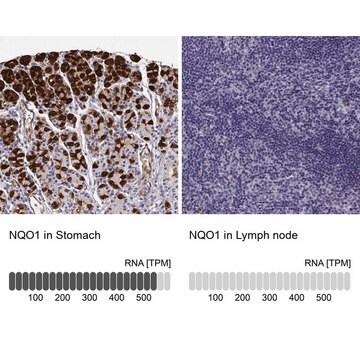추천 제품
일반 설명
Millipore’s Ready-to-Assay GPCR frozen cells are designed for simple, rapid calcium assays with no requirement for intensive cell culturing. Millipore has optimized the freezing conditions to provide cells with high viability and functionality post-thaw. The user simply thaws the cells and resuspends them in media, dispenses cell suspension into assay plates and, following over night recovery, assays for calcium response.
Prostanoids are a series of arachidonic acid metabolites produced by the action of cyclooxygenase and further modified by isomerases and synthases. Cells rapidly secrete prostanoids after synthesis, whereupon the prostanoids bind to a family of 8 GPCRs to exert their biological effects (Narumiya and FitzGerald, 2001). The prostaglandin PGE2 causes pain, vasodilation, immunosuppression of T cells, bone remodeling and promotion of carcinogenesis. Four related GPCRs, EP1, EP2, EP3 and EP4, each bind to PGE2, but the different G protein coupling status of each receptor leads to distinct biological effects. EP4 couples primarily to Gs to increase intracellular cAMP levels. During neonatal development, EP4 participates in closure of the ductus arteriosus, a process required for switching circulation from the placenta to the lungs (Nguyen et al., 1997). In addition, EP4 mediates PGE2-induced bone formation by promoting osteoblastogenesis, and selective EP4 agonists are being evaluated as potential treatments for osteoporosis (Yoshida et al., 2002). Millipore’s cloned human EP4-expressing cells are made in the Chem-1 host, which supports high levels of recombinant EP4 expression on the cell surface and contains high levels of the promiscuous G protein G15 to couple the receptor to the calcium signaling pathway. Thus, the cell line is an ideal tool for screening for agonists and antagonists at EP4.
Prostanoids are a series of arachidonic acid metabolites produced by the action of cyclooxygenase and further modified by isomerases and synthases. Cells rapidly secrete prostanoids after synthesis, whereupon the prostanoids bind to a family of 8 GPCRs to exert their biological effects (Narumiya and FitzGerald, 2001). The prostaglandin PGE2 causes pain, vasodilation, immunosuppression of T cells, bone remodeling and promotion of carcinogenesis. Four related GPCRs, EP1, EP2, EP3 and EP4, each bind to PGE2, but the different G protein coupling status of each receptor leads to distinct biological effects. EP4 couples primarily to Gs to increase intracellular cAMP levels. During neonatal development, EP4 participates in closure of the ductus arteriosus, a process required for switching circulation from the placenta to the lungs (Nguyen et al., 1997). In addition, EP4 mediates PGE2-induced bone formation by promoting osteoblastogenesis, and selective EP4 agonists are being evaluated as potential treatments for osteoporosis (Yoshida et al., 2002). Millipore’s cloned human EP4-expressing cells are made in the Chem-1 host, which supports high levels of recombinant EP4 expression on the cell surface and contains high levels of the promiscuous G protein G15 to couple the receptor to the calcium signaling pathway. Thus, the cell line is an ideal tool for screening for agonists and antagonists at EP4.
세포주 설명
GPCR Cell Lines
Host cells: Chem-1
애플리케이션
Human EP4 GPCR frozen cells for Calcium Flux FLIPR Assays.
생화학적/생리학적 작용
GPCR Class: A
Protein Target: EP4
Target Sub-Family: Prostanoid
성분
Pack contains 2 vials of mycoplasma-free cells, 1 ml per vial.
Fifty (50) mL of Media Component.
Fifty (50) mL of Media Component.
Storage Class Code
6.2 - Infectious substances
WGK
WGK 1
Flash Point (°F)
Not applicable
Flash Point (°C)
Not applicable
시험 성적서(COA)
제품의 로트/배치 번호를 입력하여 시험 성적서(COA)을 검색하십시오. 로트 및 배치 번호는 제품 라벨에 있는 ‘로트’ 또는 ‘배치’라는 용어 뒤에서 찾을 수 있습니다.
자사의 과학자팀은 생명 과학, 재료 과학, 화학 합성, 크로마토그래피, 분석 및 기타 많은 영역을 포함한 모든 과학 분야에 경험이 있습니다..
고객지원팀으로 연락바랍니다.





